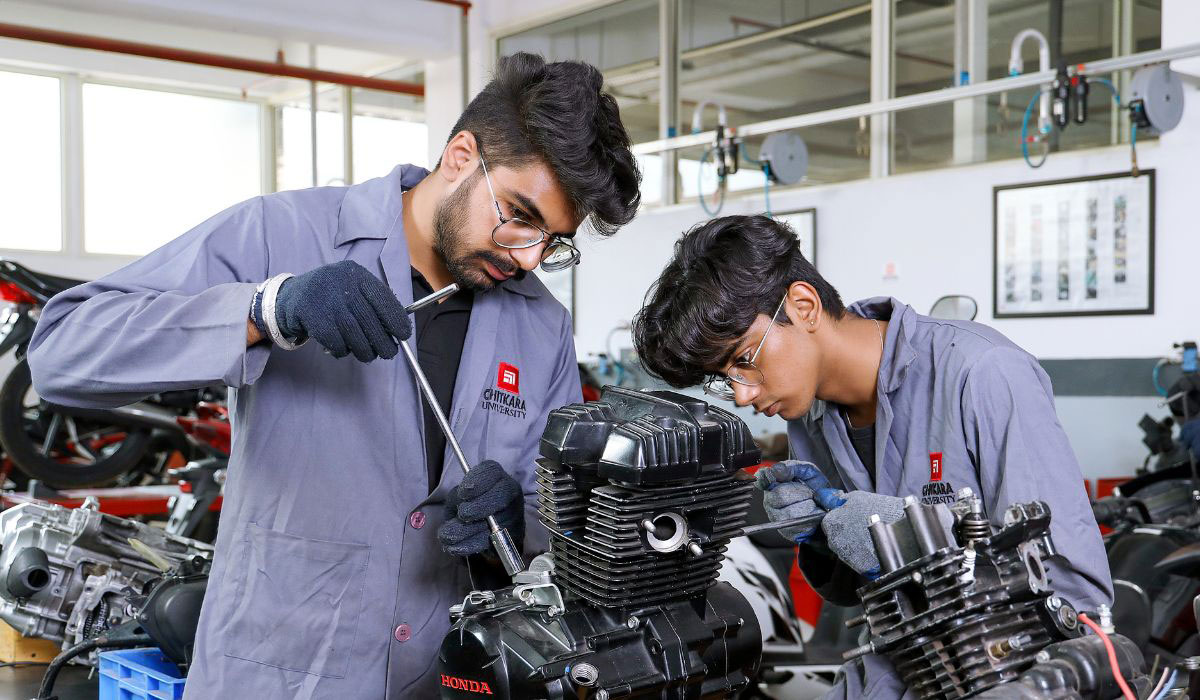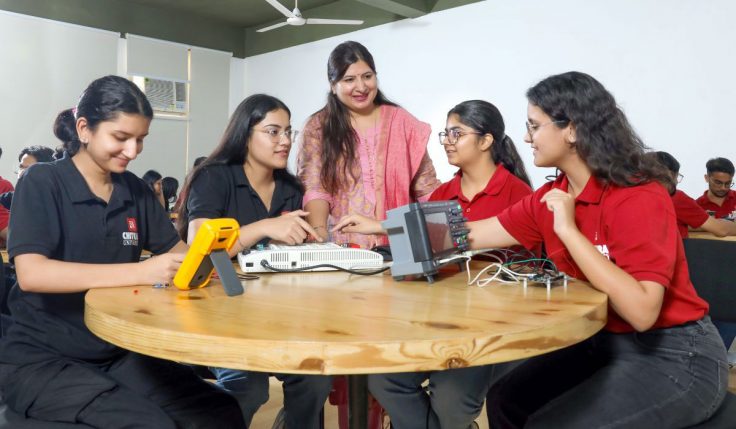What is mechanical engineering?
Mechanical engineering, a highly diverse and adaptable field, involves the examination of objects and systems in motion. Its scope encompasses nearly every aspect of contemporary life, including the intricate workings of the human body. The task of a mechanical engineer is to oversee the entire process of taking an idea for a product and turning it into a viable commodity. This necessitates the engineer’s ability to identify and analyse the forces and thermal conditions that the product, its components, or its subsystems will experience, devise functional and visually appealing designs while also being durable, and choose a manufacturing method to guarantee smooth and uninterrupted operation.
Changes that the technology in Mechanical Engineering is going through
With the shift towards the 4th industrial revolution in 2022, mechanical engineering is expected to greatly benefit, making it an opportune time to consider a B. Tech in Mechanical Engineering as a bachelor’s degree. As the world has become more complex, mechanical engineering has evolved to meet human needs, with mechanical engineers designing and developing equipment, investigating equipment failures, and testing mechanical and thermal sensors and devices.
Today’s mechanical engineering technology has brought new tools and changes, resulting in a broader range of subjects students study, from medical devices to fluid mechanics, robotics, and structural analysis. The rise of advanced manufacturing technologies, including robots, requires mechanical engineers to oversee their implementation in the industry, offering diverse career opportunities. Employers value the comprehensive education and collaborative learning projects that top engineering colleges in India offer to mechanical engineers, making job prospects in 2023 promising, particularly for those who understand emerging engineering technology and the latest software tools, including computational design and simulation.
Where Do Mechanical Engineers Work?
Biomedical
Mechanical engineers have a profound impact on the biomedical industry by improving the quality of life for individuals who are injured or disabled. They accomplish this by designing more advanced and realistic artificial limbs, creating pacemakers, artificial valves, and robotic surgical assistants, and developing running blades used in Paralympic competitions.
Construction and Building
Mechanical engineers play a crucial role in major construction projects by paying close attention to the specifics. This may involve designing the heating, cooling, and ventilation systems for a 28-story hotel, determining the optimal method for delivering natural gas to an entire housing development, or ensuring that a new metro tunnel project integrates other services to maximise the utilisation of underground space.
Aerospace
Flight is at the core of aerospace engineering, encompassing planes, missiles, and rockets. Aerospace engineers strive to design more fuel-efficient aircraft that emit fewer emissions, construct satellite fleets that enable modern GPS technology, and develop spacecraft for future missions to Mars and other celestial bodies.
Automotive
Mechanical engineers play a critical role in the automotive industry by designing bodyshells, wheelsets, and combustion systems for all moving vehicles, ranging from colossal capacity buses to single-seat F1 cars. They also work with various innovative technologies, such as solar panels and hydrogen cells, to discover new and improved transportation methods.
Manufacturing
The production industry is driven by mechanical engineers responsible for designing and developing the machines and technology used to create a wide range of products, from high-volume mass-produced goods to specialized ultra-tech equipment that our expanding population depends on.
Power
Mechanical engineers are responsible for driving the world’s energy systems. They design and develop various means of generating and distributing energy, from nuclear power plants and biomass boilers to long-distance grid connections and sustainable energy storage solutions such as solar storage cells or underground hydroelectric power storage systems.
Railway
Mechanical engineering is crucial in the railway industry, encompassing everything from tracks, signals, and trains to tunnels and ticket barriers. Engineers are responsible for designing and maintaining intricate control systems that keep everything running smoothly. As passenger numbers continue to rise and the demand for high-speed rail grows, new mechanical solutions are needed to propel the industry forward.
Process
Process engineers are experts in enhancing the efficiency of mechanical processes to ensure better quality and safety. They are involved in various major mechanical industries such as water supply, oil & gas, pharmaceuticals, and food manufacturing, among others, where they evaluate mechanical processes and find ways to improve them.
Also Read: Scope of Mechanical Engineering in India
Benefits of being a mechanical engineer
A career in mechanical engineering offers a fulfilling opportunity to make a positive impact on the world. With 89% of engineers reporting high levels of job satisfaction, it’s clear that mechanical engineers get the best of both worlds. The average base pay for a B. Tech Mechanical Engineering graduate in India is 390k per year, as per PayScale. Plus, a shortage of qualified engineers results in higher salaries and more career opportunities. Mechanical engineers earn good salaries, and the career also provides options for career progression, with 85% of engineering graduates going on to further study. Engineers make a real difference in the world by contributing to solving major global challenges. Plus, mechanical engineers work in countless industries and locations worldwide, making it an exciting and rewarding career choice.
Role of Colleges in creating sound mechanical engineers
Top engineering colleges in India play a crucial role in creating sound mechanical engineers by offering a comprehensive curriculum with a strong foundation in mechanical engineering principles, hands-on experience through internships and research projects, and access to experienced faculty who can guide and mentor students. By imparting theoretical knowledge and practical skills, colleges prepare students to succeed in mechanical engineering and contribute to advancing technology and innovation.
Chitkara University offers a structured and rigorous curriculum covering mechanical engineering fundamentals. Students learn about the properties of materials, mechanics, thermodynamics, and manufacturing processes. Chitkara University offers hands-on experience through internships, co-op programs, and research projects at the B. Tech Mechanical Engineering program. Students can work on real-world problems and gain practical skills and knowledge that will make them more lucrative to employers.
Synopsis:
This article provides an overview of mechanical engineering, its scope, and the changes taking place in the field with the shift towards the 4th industrial revolution in 2022. It describes the various industries where mechanical engineers work, including biomedical, construction, aerospace, automotive, manufacturing, power, railway, and process. The benefits of being a mechanical engineer, including high job satisfaction, good salaries, and numerous career opportunities, are also highlighted. The role of top engineering colleges in India in creating sound mechanical engineers is also discussed. The article concludes by emphasising the importance of theoretical knowledge and practical skills for succeeding in mechanical engineering.






